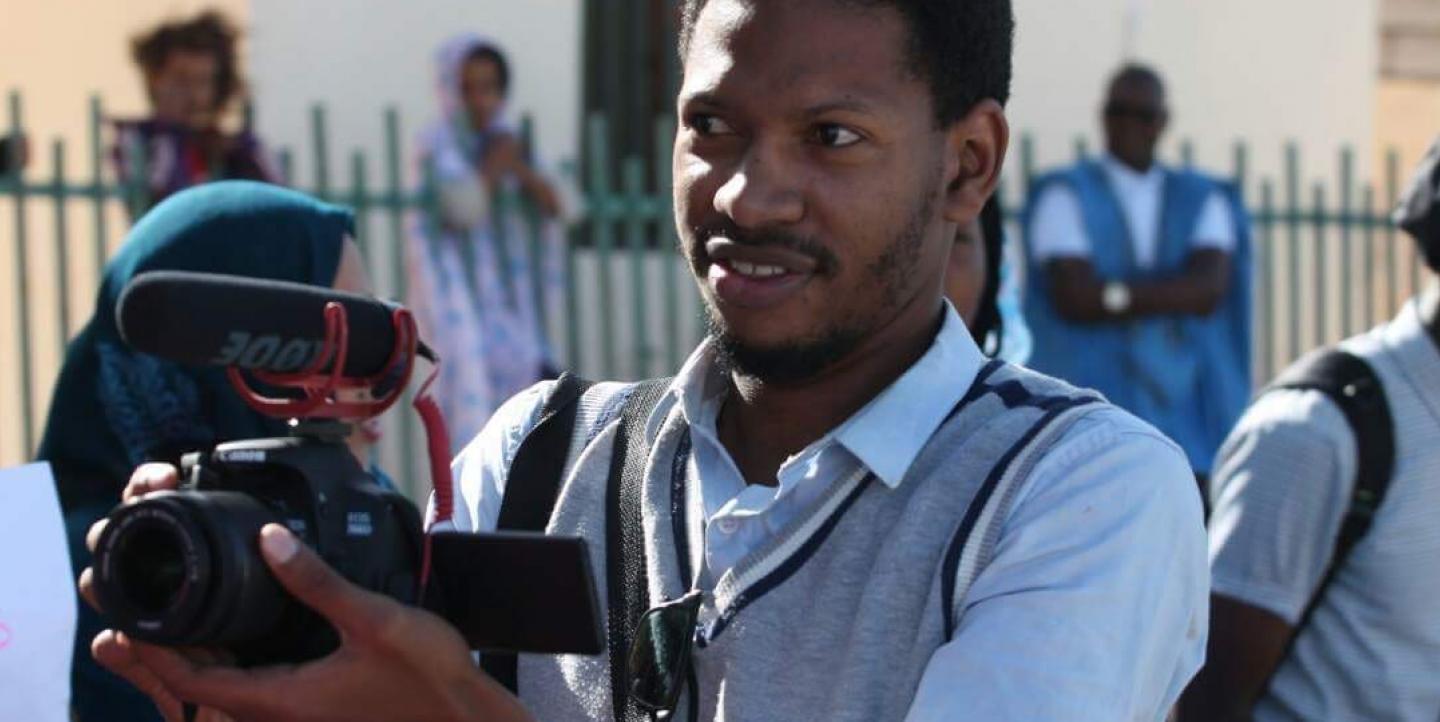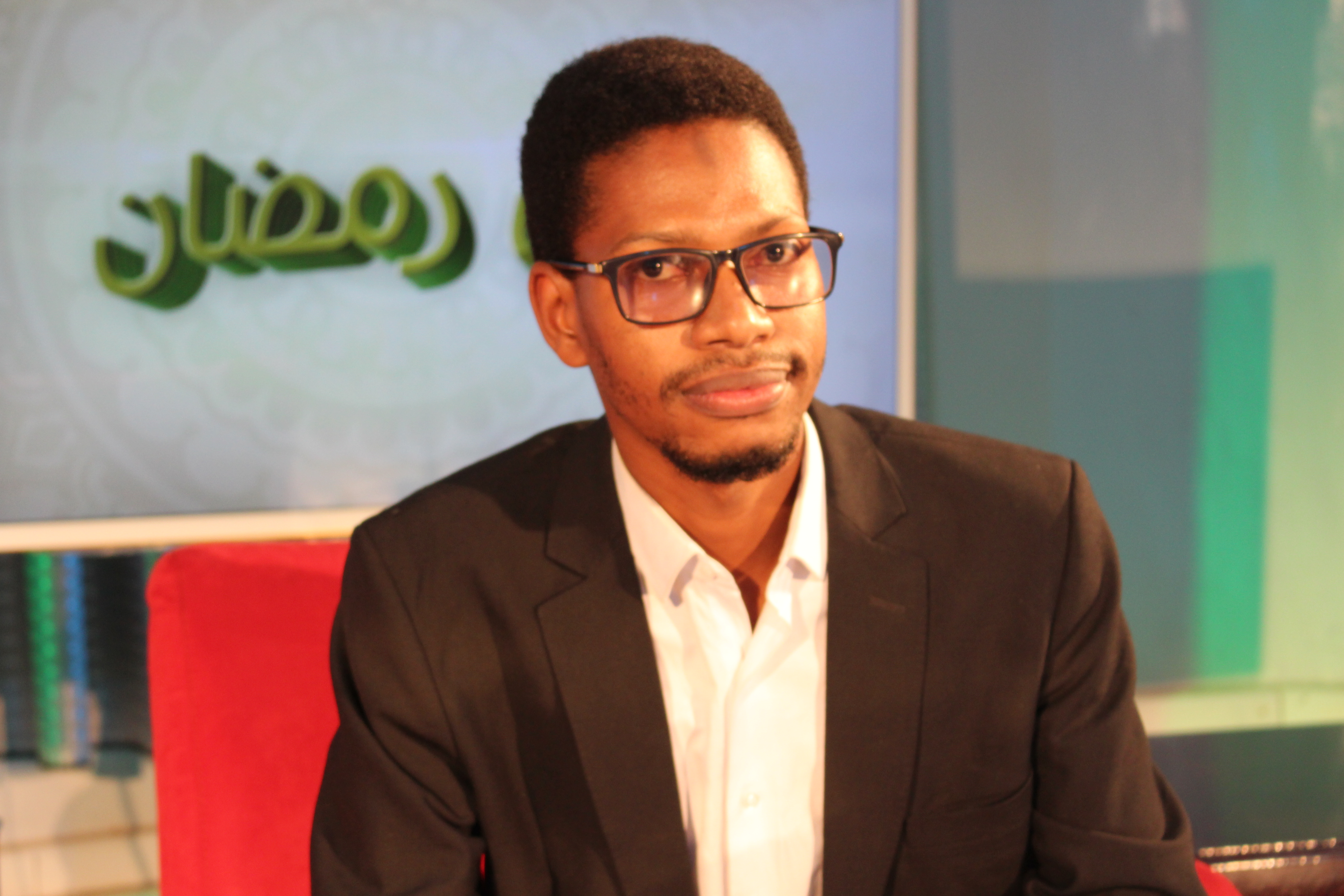Each month, IJNet features an international journalist who exemplifies the profession and has used the site to further his or her career. If you would like to be featured, click here.
“Here in Mauritania, we don’t have investigative journalists,” said Saleck Zeid.
Press freedom in Mauritania has fallen the last few years, especially following a new law that makes blasphemy punishable by death. Many journalists practice self-censorship to avoid discussing controversial topics, and independent media organizations face financial challenges. Even when they have the ability to report on topics such as bribery and government wrongdoing, the government tries to shut them down.
However, Zeid himself is challenging the notion that investigative reporting does not exist in Mauritania.
“I wanted to be a journalist when I was a little boy,” said Zeid. “I just had this dream.”
While he was studying English at university, a colleague saw Zeid’s Facebook posts and decided to introduce him to a journalist at a radio station, where he soon began working. It wasn’t long before Zeid discovered IJNet and began looking for opportunities to further develop his journalism skills.
In 2017, he used the site to find a workshop for civil society leaders in Tunisia.
“They chose me to participate with 15 young leaders from Arabic countries,” he said. “I think that it changed the way I think and helped me to get contacts with young leaders from other countries.”
Soon after, Zeid discovered an opportunity to work with Arab Reporters for Investigative Journalism (ARIJ). Aware of the lack of investigative journalists in Mauritania, he was encouraged by ARIJ’s history of supporting investigations in Arab countries, and decided to apply anyway. They accepted his investigative proposal the third time he submitted, and he has been working with ARIJ ever since.
He recently attended ARIJ’s annual investigative journalism forum in Amman, Jordan. It was an opportunity for him to meet journalists from around the world and attend workshops.
Since then, Zeid has been busy with investigations. He published a report on sexual harassment — supported by a short documentary — in Raseef 22, and another report about Mauritanian rape victims in Vice Arabic. He also anticipates the multimedia investigations he has been working on with ARIJ will be published soon.
Zeid continues to work as a radio presenter at Radio Mauritania, and is applying for a Fulbright that will begin next year.
IJNet caught up with Zeid to discuss his experience working as an investigative journalist in Mauritania.
IJNet: You’re the first journalist we’re featuring from Mauritania. What is it like to work as a journalist there?
Zeid: The reality here in Mauritania is that it’s very difficult. Journalists here work without contract for organizations. One day, I was covering a protest that was organized by students of the university, and police started to push me and ask me to not take pictures. They just asked me to leave. It's very difficult to be a journalist, and when you choose to be a journalist, you have to know that. [You’ll receive] no money and people will not respect you even if you do a very good job. Journalism is, as they say here in Mauritania, the job of the jobless.
What has been your favorite story to report?
I think my favorite story is the report about sexual harassment, because it's a taboo here. I met victims and when they spoke to me, it was the first time they had spoken to a journalist. The story was pretty good because [people] in Mauritania began to talk about it and it's helping young girls speak about this problem and what has happened to them. They have posted a lot on Facebook and Twitter speaking about their experience with sexual harassment.
What would be your advice to someone who is just beginning their career in journalism?
[If someone] wants to be a good journalist and produce stories that change society, he has to check out the websites that can help him and not hesitate to ask questions or to apply to opportunities. If people reject him, he must try again and again and again, until he succeeds. Without trying, we cannot improve our skills.
Is there anything else you want readers to know about Mauritania?
I just hope that international organizations or journalists would be interested in Mauritania and the topics here. When I see Mauritania in international organizations’ websites, I can't find anything useful. I see [opportunities for] journalists in Morocco and Tunisia, but Mauritania is not one of the countries that can participate.
This interview has been edited and condensed for clarity.
Main image courtesy of Zeid.



